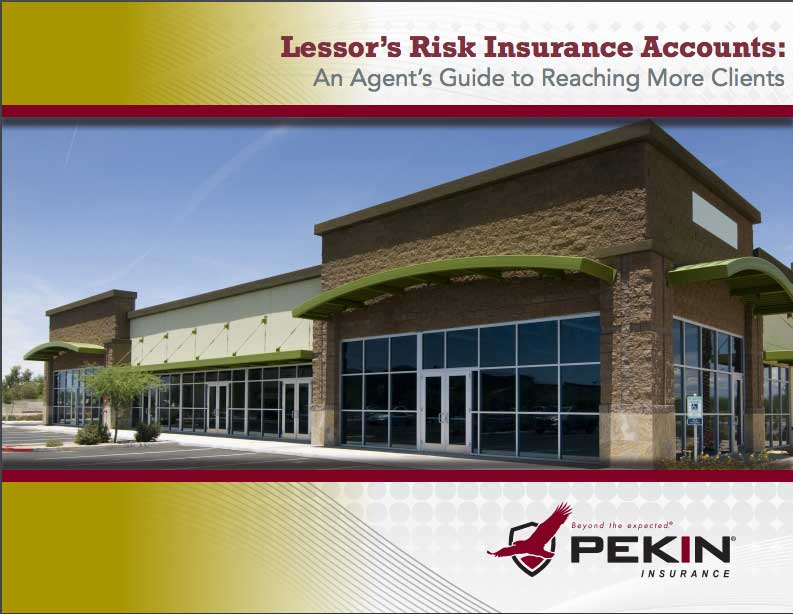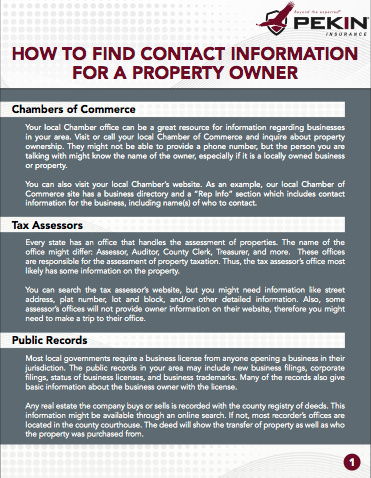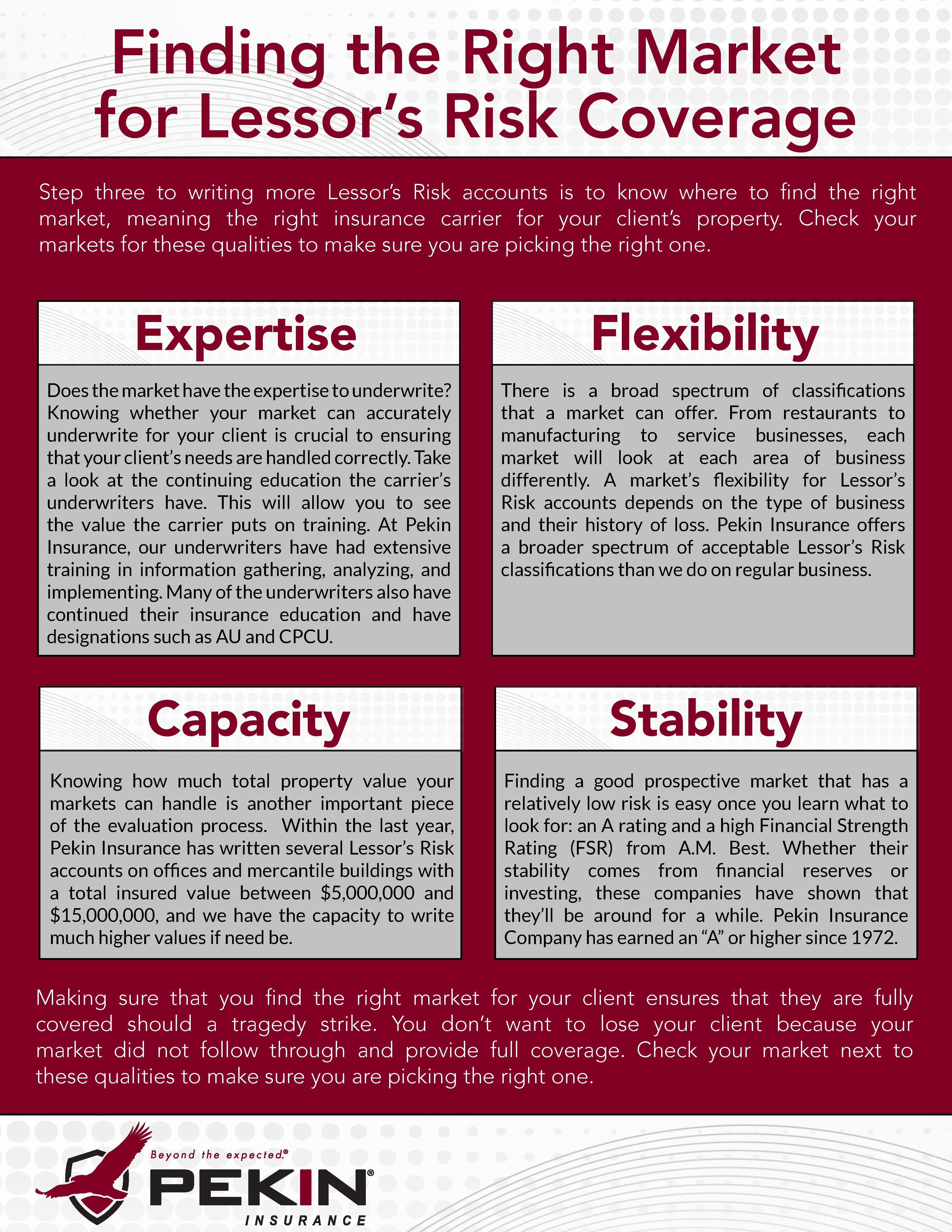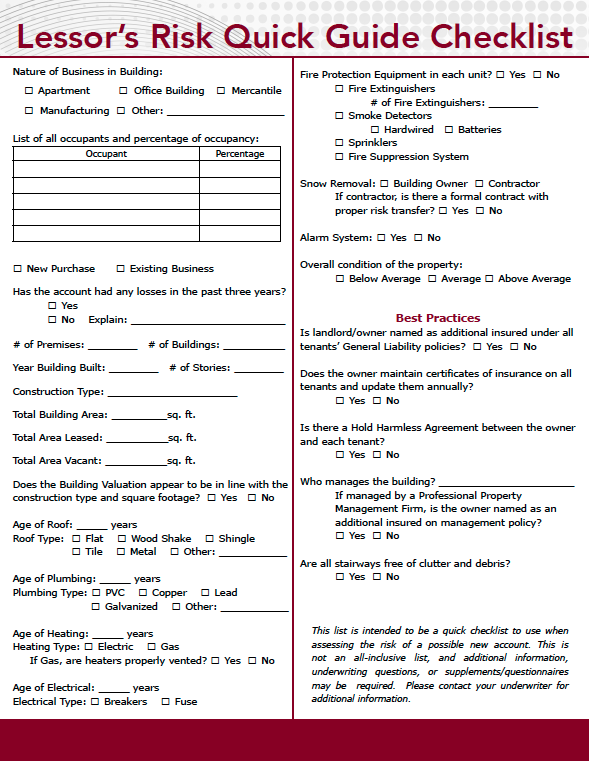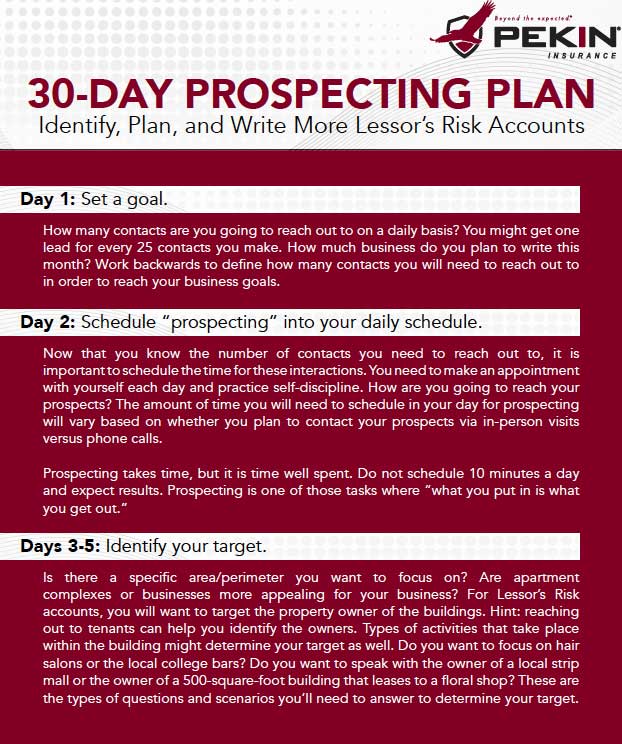A hold harmless clause, also known as Release of Liability, is commonly found in contracts and allows one or both parties to limit their legal liability. However, hold harmless clauses vary by state, and some states will not uphold overly broad agreements, while other states have anti-indemnity laws that would prohibit hold harmless clauses altogether.
While they are used to absolve the property owner for liability, even if his negligence was the reason for the tenant’s, tenant’s employee, or customer’s injuries or damages, this does not mean it provides the same coverages that an insurance policy does.
Often states will not uphold the hold harmless clause when the accident was the result of faulty equipment, improper attention, or poor maintenance. If the property owner were to have insurance coverage, then they would be covered from an accident relating to fault on their part.
This comes into play, for example, if a property owner has an apartment building and if a tenant fell down the stairs due to an unstable stair, then the fault falls on the property owner. By not maintaining the property, the property owner is at fault for not properly repairing or replacing the broken stair.
A hold harmless clause is often deemed voided, unless the clause is specific to a certain place and scenario. For example, a window cleaner contracted to clean the exterior windows of a building signed a hold harmless agreement with a property owner for the contracted job. Should he fall from the ladder while cleaning the building, the owner would not be held responsible for the accident as per the hold harmless agreement. However, should the window cleaner walk inside and fall on the stairs due to a broken handrail, then the hold harmless agreement would not apply and fault would fall on the property owner.
Having a general liability insurance policy would cover the property owner should the accident fall outside of the hold harmless clause, which property owners often run into. Save your client the legal costs and make sure they have general liability insurance to protect them from the unexpected.
